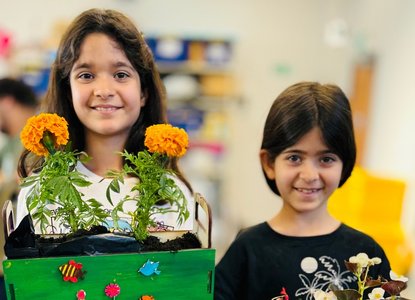Surviving Economic Abuse was awarded a £7,000 Funding Plus award to deliver a comprehensive diversity, equity and inclusion (DEI) audit that shaped the organisation’s strategic direction and strengthened its commitment to transformative, values-driven equity work.
Surviving Economic Abuse raises awareness of economic abuse, as a form of domestic abuse, and transforms responses to it. The charity supports local frontline services and the financial services sector to recognise economic abuse and effectively support victim-survivors, while influencing law and policy to drive lasting systemic change.
About the work supported
- Commissioned an organisation-wide DEI audit using a transformative framework to establish a clear baseline and guide the development of a new three-year strategy.
- Gathered insights through staff surveys and focus groups, generating practical recommendations that informed immediate changes such as inclusive recruitment practices and improved survivor engagement.
- Supported the refresh and diversification of the Experts by Experience group, ensuring that women with lived experience continue to shape all aspects of SEA’s work in an equitable and representative way.
Reflections from Surviving Economic Abuse
What did the DEI support help you to do?
Rosa Wilson-Garwood, Head of Impact and Partnerships, said: We commissioned a DEI audit because we were just about to go into developing a new 3-year strategy. I’d seen audits working well in some of my previous roles, and we thought it was a good point to do a stock take and have a benchmark that we could compare to in future. We had some survey data and some focus groups, and the recommendations were useful.
Our provider used a framework comparing transactional and transformative approaches to DEI, which was really helpful. We wanted to be transformative - we didn’t want this to be a tick box - that spirit was there from quite early on. We didn’t have to convince anyone that the work mattered.
What difference did it make to you as an organisation?
Sonu Masania, Head of Specialist Team, said: I think it made a huge impact. We had been approaching this without a framework, and so having a baseline understanding of where the organisation was at right now and what was in its scale of ambition, helped us to understand what could be implemented immediately. It’s prompted a lot of conversation internally, and it’s been really great to see the work develop a life of its own within the organisation.
It’s had a big impact on how we apply for funding. For example, any time we make a funding application we now consider budget for working with by-and-for organisations. We recognise their contribution in terms of remuneration and value their expertise, and through things like co-branding we seek to make our partnerships equitable.
We also changed our recruitment approach really early on. We included reasonable adjustments like sharing interview questions in advance.
We refreshed the membership of the experts by experience group - a group of women with lived experiences of economic abuse who work alongside us and inform all of our work – and developed a survivor engagement strategy around how we would diversify the group’s voices. If that group informs everything we do, it’s important for those voices to be diverse.
This work matters deeply to SEA because economic abuse disproportionately impacts marginalised women, and embedding EDI ensures our response is inclusive and effective.
What were some of the challenges you faced in sustaining the work?
Sonu Masania, Head of Specialist Team, said: we’ve been trying to get funding for a piece of research to further understand the experience of Black and minoritised women, and it has just been such a struggle. We have tried every possible avenue. It just speaks to the underfunding in this area.
But other than that, we’ve been able to sustain the work. We’re now doing some work with another consultancy to build on the initial audit and see how far we’ve come. We’ve embedded EDI into our 3-year strategy. We’ve got an EDI working group to embed it across all teams and in everyone’s role.
What learning would you like to share with other organisations?
Rosa Wilson-Garwood, Head of Impact and Partnerships, said: I’d say, look for alignment of values. We’re unapologetic about being feminist and about the centring of women within our analysis, and we wanted to work with an organisation who shared those values.
It’s also helpful to balance having a variety of external inputs with having support from an organisation which can work with you over a period of time so that it’s consistent.
For funders, it’s important to balance support for internal changes related to EDI and external, impact-focused EDI work. You know, using your influence as a funder to help shift organisations strategically around EDI. You can do all you want with recruitment, representation and stuff, but if actually the impact of your work isn’t transformative, it isn’t going to go anywhere.


